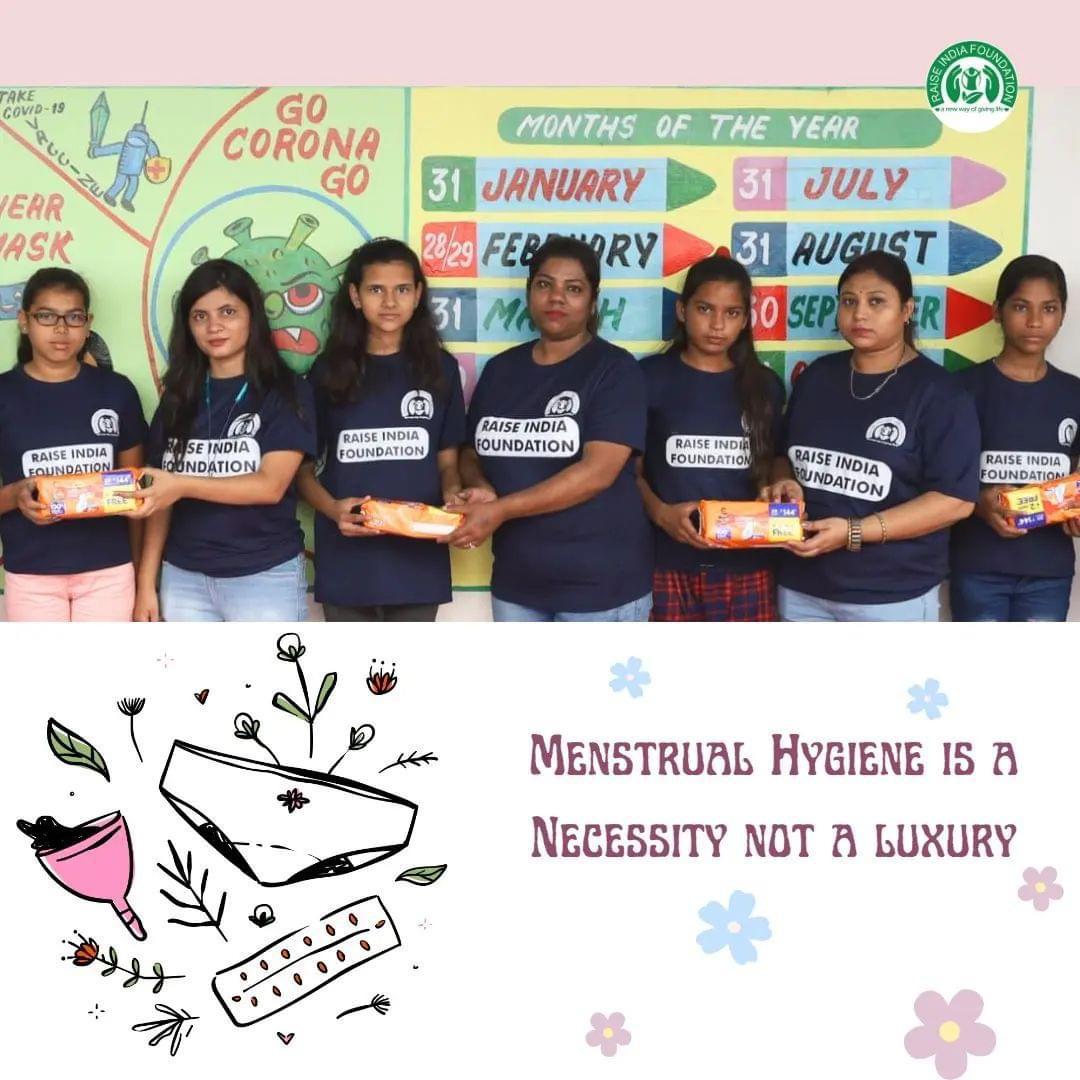Over the past 7 years, Raise India Foundation believes in providing all the resources to the needy to support & empower them to create their own fate. Raise India Foundation, among one of the most active NGO in India, works intensively through focused welfare projects in areas like education for poor children, healthcare for marginalized and vulnerable communities, community engagement through women empowerment, disaster management, skills training and livelihood for youth and save the environment. Raise India Foundation.

HEALTHCARE & SANITATION
Adequate sanitation, together with good hygiene and safe water, are fundamental to good health and to social and economic development. That is why, In 2008, the Prime Minister of India quoted Mahatma Gandhi who said in 1923, “Sanitation is more important than Independence”. Improvements in one or severity of various diseases and improve the quality of life of huge numbers of people, particularly children, in developing countries. Although linked, and often mutually supporting, these three components have different public health characteristics. This paper focuses on sanitation. It seeks to present the latest evidence on the provision of adequate sanitation, to analyse why more progress has not been made, and to suggest strategies to improve the impact of sanitation, highlighting the role of the health sector. It also seeks to show that sanitation work to improve health, once considered the exclusive domain of engineers, now requires the involvement of social scientists, behaviour change experts, health professionals, and, vitally, individual people.
The diseases associated with poor sanitation are particularly correlated with poverty and infancy and alone account for about 10% of the global burden of disease. Sanitation promotion is one of the most important roles the health sector can have in environmental health planning, because behaviours must be changed to increase householders’ demand for and sustained use of sanitation, especially in rural areas where the pressure for change is lower.
Sanitation and hygiene are critical to health, survival, and development. Many countries are challenged in providing adequate sanitation for their entire populations, leaving people at risk for water, sanitation, and hygiene (WASH)- related diseases. Throughout the world, an estimated 2.4 billion people lack basic sanitation (more than 32% of the world’s population). Basic sanitation is described as having access to facilities for the safe disposal of human waste (feces and urine), as well as having the ability to maintain hygienic conditions, through services such as garbage collection, industrial/hazardous waste management, and wastewater treatment and disposal.
Menstruation is a normal physiological process of females at their reproductive age. However, it is surrounded with social taboos and supernatural beliefs. The poor knowledge and understanding of menstruation may lead to unsafe hygienic practice that intern increases the risk of reproductive and genito-urinary tract infections, cervical cancer, school drop- out, poor academic performance and overall poor quality of life. The main reasons for this taboo still being relevant in the Indian society are high rate of illiteracy especially in girls, poverty and lack of awareness about menstrual health and hygiene. Only less than 18 per cent of Indian women use sanitary pads by 2010.
The objective of our programme will be accomplished through integrated awareness and motivational programmes. It will provide them with know-how on how to handle menstruation, improve knowledge of personal hygiene and boost confidence by answering unanswered questions through interactive and engaging training methods. We have given this project the name
* Chuppi Todo – Ye Sharm Nahi Samman*
“Menstruation is not a problem, poor menstrual hygiene is” In the present time (of pandemic), it is difficult for many to even get two square meals a day; buying sanitary pads and maintaining menstrual hygiene has become an unthinkable luxury. The idea behind choosing this theme is to highlight how the challenges faced by women during menstruation have worsened due to the ongoing pandemic. “Periods don’t stop for pandemic – it’s every girl’s right to manage her period safely and with dignity”.
Our Honorable Prime Minister Shri Narendra Modi’s motivational speech on India’s 74th Independence Day has pumped us to do more since only 36% women have access to sanitary pads, and millions are still forced to use husk or dirty clothes. And it is proven that poor menstrual hygiene can lead to fatal infections, urinalysis tract infection and even cervical cancer. In our campaign we are seeking support from all Public, Corporate, Individuals for needy women to provide them free Dignity kit with awareness about using sanitary pads and prevention from infections. Lack of menstrual hygiene management is a major reason for majority of the girls skipping schools during their periods and eventually dropping out at an early age and missing out on their education.
Raise India Foundation is successfully running this campaign “Chuppi Todo – Sharm nahi Samman” around all the construction sites (industrial sites) in Delhi and NCR. In a bid to improve menstrual hygiene among female construction workers we decided to help them by offering Dignity Kits. These Dignity kits contain hygiene and sanitary items, as well as other items explicitly tailored towards the local needs of women and girls of reproductive age in particular communities. Each Dignity Kit contains 15 sanitary pads, pair of undergarments, a detergent soap, a bathing soap and a Towel.
Raise your hand for women’s dignity and a conversation on a menstruation because menstruation it’s about women dignity and health. Let us strive to improve the lives of these women by creating a safe and secure environment for them. Come and join us in our campaign, together we can make the difference for them. Every woman deserves it…no matter where she is. Restoring: Dignity. Hope. Opportunity.
